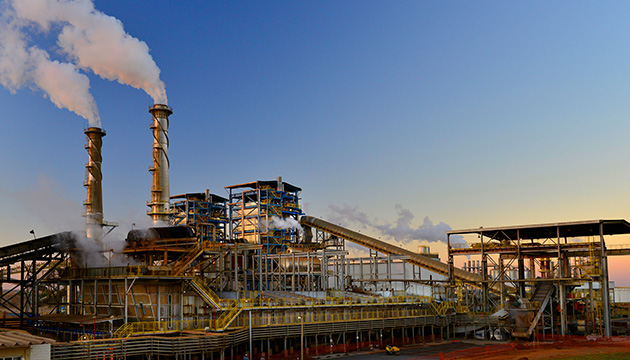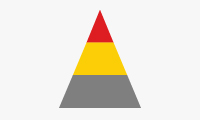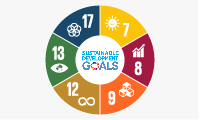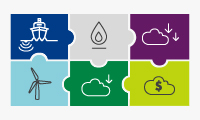Biofuels
Biofuels are expected to play a valuable role in the changing energy mix. They can be a cost-effective way to reduce carbon dioxide emissions in the transport sector, as long as their production is managed in a responsible way.
Shell is one of the largest blenders and distributors of biofuels worldwide. We purchase biofuels to blend into our fuels in line with country-specific regulations. In addition to understanding blended biofuel emissions, we want to ensure that other environmental impacts from their production are well managed – such as the effect on soil, air and water – and there is a positive impact on the livelihoods of local communities.
The start of the Raízen joint venture (Shell interest 50%) in Brazil in 2011 marked our first move into the large-scale production of biofuels. We also continue to look for opportunities to invest in the development of advanced biofuels.
For more details on our approach to biofuels refer to www.shell.com/biofuels.
Key developments in biofuels
We continue to support the adoption of international sustainability standards including the Round Table on Responsible Soy (RTRS), the Roundtable for Sustainable Palm Oil (RSPO) and Bonsucro, an organisation for the certification of sugar cane. We also support the Roundtable for Sustainable Biomaterials and the International Sustainability and Carbon Certification (ISCC) for feedstocks.
Three-quarters of the biofuels we purchase are from North American or European feedstock producers. Both regions have good agricultural practices and sustainability rules relating to areas such as land-use restrictions and limits for greenhouse gas emissions.
By 2020, we aim to have 100% of the sugar-cane ethanol and South American soy biodiesel used in Shell blended biofuels certified as sustainable.
100% of the palm oil that we blend is already certified by RSPO or the ISCC, or covered by offsets from the RSPO certificate trading system.
Global bio-component purchase [A]
by feedstock
Enlarge image[A] Does not include purchases by Raízen or Motiva.
In 2017, we concluded a support project with the Federation of Argentine Farmers (AFA), to help them become RTRS certified. The federation is comprised of 17,000 small- and medium-sized soy farms in Argentina and represents around 20% of the country’s soy growers. We worked on the project with Cefetra, a large European animal feed trading company, which has taken a leading role in sourcing sustainable soy meal for its European customers.
Producing biofuels with Raízen
In 2017, our joint venture Raízen (Shell interest 50%) produced around 2 billion litres of low-carbon ethanol from Brazilian sugar cane. Around 44% of Raízen’s ethanol and 38% of its sugar production was certified as sustainable to the standards set by Bonsucro.
Raízen’s production process is designed to minimise its environmental impact. By the end of 2017, 20 of Raízen’s 24 sugar-cane mills were certified to the Bonsucro standard.
Raízen purchases around half of the sugar cane it uses as a raw material from independent suppliers. Since 2014, the company has worked with two non-governmental organisations, Imaflora and Solidaridad, on a programme to help its suppliers become more sustainable producers. The suppliers complete a confidential assessment against a list of sustainability criteria which enables Solidaridad to prepare individual improvement guides. The programme currently covers 99% of third-party sugar cane, meaning that 2,130 suppliers have completed the assessments and are working on improvements. In 2017, Raízen issued a good practices manual to help suppliers move through the programme.
In 2015, Raízen launched the ReduSa programme aimed at reducing water consumption and waste generation when growing sugar cane. This was achieved by decreasing overall water use per tonne of ground cane and reducing water consumption in the industrial processes by recycling the water used. In two years, water usage was reduced by 8 billion litres, equivalent to the annual consumption of a city of 135,000 people in Brazil.
For more details on Raízen, see the company’s sustainability report.

Raízen, our joint venture in Brazil, uses the latest technology to produce ethanol from sugar cane, with an annual production capacity of more than 2 billion litres.
Developing advanced biofuels
We continue to invest in the research and development of new ways to produce biofuels from sustainable feedstocks such as waste and cellulosic biomass from non-food plants.
Raízen started operating its first cellulosic ethanol plant in 2015 at its Costa Pinto mill in Brazil. Production in 2017 was 10 million litres. Over time, the mill is expected to produce around 40 million litres a year of advanced biofuels from sugar-cane residues.
In 2017, we completed construction of a plant at Shell Technology Centre Bangalore, India, which demonstrates a technology called IH2 that turns waste into transport fuel. The plant can process around five tonnes a day of non-food biomass, such as wood, algae, municipal waste and aquatic plants. The plant is the final stage of the R&D process before possible scaling up and commercialisation.
We continue to look for opportunities to invest in third-party technologies and to collaborate in developing them for commercialisation.
 Sustainability at Shell
Sustainability at Shell
 Sustainable development goals
Sustainable development goals
 About our data
About our data
 Energy transition and climate change
Energy transition and climate change